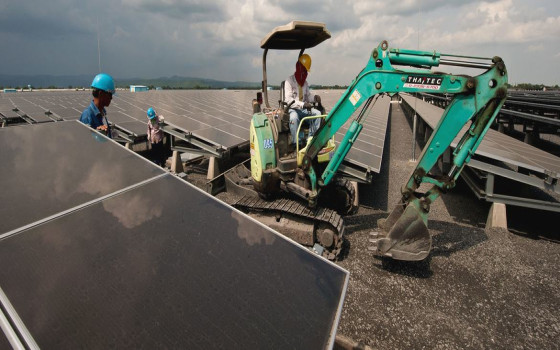
An investment gap of $4 trillion to achieve development goals in developing countries

- Europe and Arabs
- Thursday , 6 July 2023 18:4 PM GMT
New York - Brussels: Europe and the Arabs
Developing countries face a massive $4 trillion investment gap to achieve the Sustainable Development Goals, according to a new report released by the United Nations Conference on Trade and Development (UNCTAD) on Wednesday.
The report warned that building a green future will remain elusive if the world does not help developing countries bridge a $2 trillion investment gap for the energy transition.
The Secretary-General of UNCTAD, Rebecca Greenspan, stressed the need to significantly increase financial support for renewable energy in developing countries in order to achieve the world's climate goals by 2030. According to what was stated in the United Nations news bulletin, a copy of which we received Thursday morning.
Poorer countries are being left behind
The report stated that poorer countries lag largely behind, although investment in renewables has nearly tripled since the adoption of the Paris Agreement nearly 8 years ago.
Ms. Greenspan said that more than 30 developing countries had not recorded a single large-scale international investment in renewable energy generation since the adoption of the landmark Climate Change Treaty in 2015.
According to UNCTAD, the amount of foreign direct investment in clean energy attracted by developing countries in 2022 was $544 billion - far below needs.
Funding for the Sustainable Development Goals has slowed down
There is some good news in the report, as energy companies - among the top 100 multinationals - are reported to be increasingly turning to renewables and shedding fossil fuel assets at a rate of about $15 billion annually.
However, the report also shows a general slowdown in investment in renewable energy in 2022, "with a decline in international project financing deals".
UNCTAD said that the biggest gaps in investments related to the Sustainable Development Goals in developing countries were in energy, water and transport infrastructure.
Challenges facing foreign direct investment
According to UNCTAD, foreign direct investment declined as global flows fell by 22 percent in 2022 to $1.3 trillion.
FDI inflows fell by up to 16 per cent in least developed countries, the vast majority of which are located in Africa.
The UNCTAD report confirmed that this slowdown was driven by "interlocking crises", including the war in Ukraine, rising food and energy prices, and stresses related to debt burdens.
With these factors continuing through 2023, the agency said it expects "downward pressure on global foreign direct investment" to continue this year.
SDGs 'too big to fail'
The report called for setting up a series of policies and financing mechanisms to help developing countries attract the necessary investments.
The UNCTAD conference stressed the importance of debt relief for developing economies, to provide them with the necessary fiscal space to spend on clean energy and to help lower country risk ratings, which is a prerequisite for attracting private investment.
The agency also recommended lowering the cost of capital for investing in clean energy through partnerships between international investors, the public sector and multilateral financial institutions — a measure that could reduce the spread of borrowing costs for energy investment projects in developing countries by up to 40 percent.
Ms. Greenspan stressed that investment played a "major role" in achieving the Sustainable Development Goals, stressing that these goals are "too big to fail" and require collective action and global solidarity to achieve them.












No Comments Found